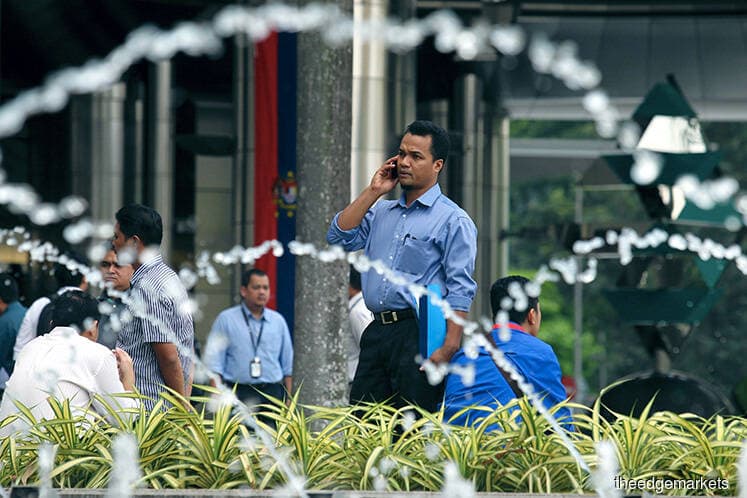
KUALA LUMPUR (Nov 11): Malaysian workers are expected to see a big drop in their real salary increases next year at 2.9%, compared with an estimated 4.0% this year, according to a study on salary trends by global consultancy firm, ECA International.
“Despite the forecasted nominal salary increase staying at 5.0%, inflation in Malaysia is expected to rise from 1.0% to 2.1%, which will reduce the rate at which salaries increase in real terms for workers in the country.
“Although it is still relatively high, the predicted lower real salary rise for workers compared to 2019, has seen Malaysia drop out of the global and Asia Pacific’s top 10,” said ECA International's Asia regional director Lee Quane in a statement today.
The information was culled from ECA International's annual Salary Trends Report, which analyses current and projected salary increases for local employees in 68 countries across the world.
Asian countries dominate the Top 20, with India on top
According to ECA International, Asian nations will lead the way again for salary increases next year. Not only are 13 out of the top 20 projected increases in real salaries globally being dominated by Asian countries, the top 5 spots are also all Asian countries, with India leading the pack with an average real salary increase of 5.4%.
"The average real salary increase in the Asia Pacific (AP) region is forecasted to be 3.2%, which is significantly higher than the global average of 1.4% and nearly three times the European average of 1.1%. This is a trend that we have seen for many years now, due to low inflation and rising productivity in many Asian economies, resulting in the rapid growth of salaries compared to other regions,” Quane said.
In particular, he said emerging economies of Vietnam and Thailand will both see significant real salary increases, placing them in the global top five, with increases of 5.1% and 4.1% respectively.
The real salary increase in China is also expected to come in above the regional and global average again, at 3.6%. “Although there are signs that the Chinese economy may be slowing down in the face of the ongoing trade war with the US, wages and salary increases are still holding firm. China has also maintained its place in the global top 10 for salary increases,” Quane said.
He also noted that the average real salary increase for workers in Singapore is forecasted to be 3.0% above inflation in 2020, a slight drop from the 3.3% increase that was seen in 2019, after factoring in the predicted 1% inflation. This places Singapore in 11th place in Asia rankings.
Hong Kong, which is beset by violent protests, will see only an average increase of 1.4% in real salary next year — after considering its forecasted 2.6% inflation — representing one of the lowest increases in the AP region.
Pakistan, meanwhile, are predicted to be the only nation in AP to see a decrease in real salary.
“The average real salary increase in Pakistan is forecasted to be -3.0%, meaning that employees will be worse off than they were last year. Despite the nominal increase staying at a relatively high 10.0%, inflation has shot up as the rupee has depreciated. Inflation in Pakistan is forecasted to reach 13.0% in 2020, exceeding the nominal increase and leaving workers out of pocket compared to 2019,” Quane added.